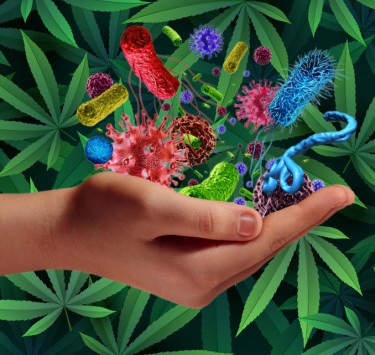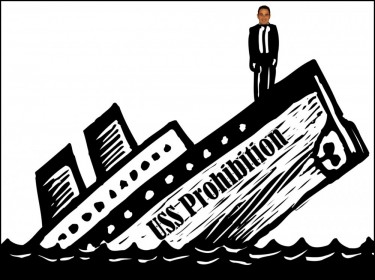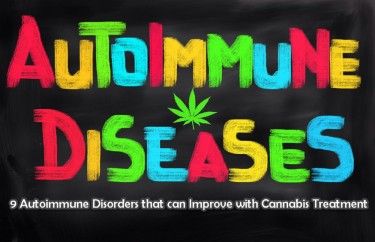Cannabis News
The Scrooge of Cannabis Takes on VP Harris with Reefer Madness
Published
8 months agoon
By
admin

Reginald vs The Scourge – Analyzing Sabet’s latest Reefer Madness
As an advocate for personal responsibility, bodily autonomy and freedom, I have made it my mission to challenge the stance of prohibition and counteract the misinformation that fuels it. The right of individuals to make informed choices about what they put into their own bodies is fundamental. Yet there are still vocal prohibition advocates who spread falsehoods and rely on fearmongering rather than facts. It’s crucial that we critically examine their claims to determine if there is any real scientific and logical basis behind them.
For years, one of the loudest voices on the prohibition side has been Kevin Sabet and his organization SAM (Smart Approaches to Marijuana). Sabet recently co-authored an opinion piece in The Hill arguing against rescheduling cannabis and painting a dire picture of the supposed harms of legalization. But do his arguments hold up to scrutiny?
In this article, we’re going to take a close look at the claims made in Sabet’s latest letter, titled “Kamala Harris is gravely wrong about rescheduling marijuana.” We’ll see if there is factual merit behind the rhetoric, or if it’s simply drug war propaganda fueled by ideology and vested interests.
To be clear, I hold no love for Vice President Harris given her history as a prosecutor who gleefully sent cannabis users to jail as California Attorney General. It pains me to have to defend her recent comments in favor of rescheduling. But intellectual honesty demands calling out Sabet’s flawed arguments, even if Harris and I are strange bedfellows on this issue.
With over 90% of Americans now in favor of legal access to cannabis, at least for medical use, Sabet’s prohibitionist views represent an increasingly marginalized fringe. Yet he still garners attention as the media’s go-to “anti-pot” voice. So join me as we dissect his latest screed and I make the case for why his Reefer Madness mindset belongs in the dustbin of history.
As always, I approach this not as a blind defender of cannabis, but as someone who believes policy should be grounded in science, reason and human rights. Let’s see if Sabet’s arguments meet that bar.
In order to save you all time from reading the Letter, I have gone through some of their arguments and come up with a response to each point. Mainly, I challenge their logic, their conclusion, and whether or not they have a bias in a particular arena.
Let’s go!
“First, we should address what Harris left unsaid. Since his election, Biden has demonstrated that criminal justice reform is possible without commercializing today’s industrialized, high-potency THC drugs or legalizing dangerous psychoactive drugs.”
While President Biden has taken some symbolic steps towards cannabis reform, such as pardoning low-level federal possession offenses, his overall impact on the legal status of cannabis has been sorely lacking. The glaring elephant in the room is that cannabis remains a Schedule I substance under federal law, a classification reserved for drugs with “no currently accepted medical use and a high potential for abuse.”
This scheduling is not only scientifically baseless, but a cruel joke to the millions of patients who rely on cannabis as a safer, less addictive alternative to prescription opioids and other pharmaceuticals for treating conditions like chronic pain, PTSD, epilepsy, and the side effects of chemotherapy. The medical applications of cannabis are extensively documented, with FDA-approved cannabinoid medications like Epidiolex and Marinol just the tip of the iceberg.
Moreover, the notion that cannabis belongs in the same category as heroin in terms of abuse potential is laughable when compared to the legal and widely available drug alcohol, which is far more toxic and addictive by any objective measure. The continued Schedule I status of cannabis is a relic of the racially and politically motivated War on Drugs, not a reflection of scientific reality.
While incremental criminal justice reforms are welcome, they don’t address the root problem of cannabis’ egregious misclassification, which perpetuates stigma, stifles research, and keeps the industry in a legal gray area. If the Biden administration is serious about righting the wrongs of the drug war and embracing an evidence-based approach, it must prioritize the descheduling of cannabis altogether.
Sadly, these glaring contradictions and the need for substantive change seem to be among the many things left “unsaid” by our political leaders, even as public opinion and state-level legalization increasingly leave federal prohibition behind. It’s time for the Biden administration to match its rhetoric with bold action and consign cannabis prohibition to the dustbin of history where it belongs.
“There was no one representing social justice advocates, scientists and public health experts concerned about the harms of marijuana commercialization. Many of these experts have studied the socioeconomic effects of lax marijuana policies, including the fact that pot shops are often concentrated in and target poorer and non-white communities on purpose, much like menthol cigarettes target Black communities.”
Kevin Sabet and his cohorts at SAM love to posture as champions of social justice, but their actions and affiliations tell a different story. It’s high time we called out their cynical exploitation of marginalized communities as a cover for their true agenda – protecting the profits of the rehab industry that funds them.
Let’s be clear: Sabet’s organization has deep financial ties to the very same rehabilitation clinics that benefit from the court-ordered treatment of cannabis users caught up in the criminal justice system. These are the same clinics that are often in cozy partnership with the state, creating a perverse incentive to keep cannabis criminalized and the treatment beds filled. So when Sabet sheds crocodile tears over the impact of legalization on disadvantaged populations, forgive me if I’m a bit skeptical of his sincerity.
If Sabet and friends truly cared about social justice, they’d be working to dismantle the racist and classist drug war policies that have devastated communities of color, not fighting to preserve them. They’d be advocating for restorative justice, expungement of past convictions, and equitable access to the legal cannabis industry, not scaremongering about the supposed harms of legalization.
I’m all for an honest, evidence-based discussion about the public health implications of cannabis policy. Sabet claims to have science on his side? Great – let’s see him square off against the countless medical professionals and researchers who have attested to the therapeutic potential and relative safety of cannabis compared to legal substances like alcohol and tobacco. I’ll bring my experts, he can bring his, and we’ll see whose arguments hold up to scrutiny.
Of course, no policy is without trade-offs and the transition to a legal, regulated cannabis market is no exception. There will undoubtedly be some unforeseen consequences and challenges along the way. But when we weigh the evidence objectively, it’s clear that the overall societal benefits of ending prohibition – from reducing incarceration to generating tax revenue to weakening the illicit market – far outweigh the potential downsides.
So spare me the social justice smokescreen, Kevin. It’s time to have an honest conversation about cannabis policy, one grounded in science, compassion, and a genuine commitment to righting the wrongs of the failed war on drugs. The American people are ready for change – the question is, are you?
“While Biden should be praised for his stance opposing legalization and supporting expungement and removing penalties, rescheduling marijuana would be an abandonment of his efforts to keep drugs off our streets”
Your claim that rescheduling cannabis would undermine efforts to “keep drugs off our streets” would be laughable if the consequences of this thinking weren’t so tragic. News flash: after decades of prohibition and trillions of dollars wasted on enforcement, drugs are more readily available than ever. If you don’t believe me, just ask any high schooler how long it would take them to score some molly or a vape pen. Spoiler alert: probably less time than it takes to get a pizza delivered.
The painful reality is that the War on Drugs has been an abject failure by every conceivable metric. Despite the tireless efforts of the DEA and other law enforcement agencies, the illicit drug trade continues to thrive, with devastating consequences for public health and safety. Overdose deaths are at record highs, cartels are raking in billions, and marginalized communities bear the brunt of the violence and incarceration that prohibition fuels.
It’s time to face the facts, Kevin. We can’t arrest and incarcerate our way out of this crisis. The only way to truly get drugs under control is to bring them out of the shadows and into a system of strict regulation and oversight. By legalizing and regulating substances like cannabis, we can ensure that adults have access to safe, lab-tested products while keeping them out of the hands of minors. We can redirect law enforcement resources toward more serious crimes, and use the tax revenue generated by legal sales to fund education, prevention, and treatment programs.
This isn’t some radical, untested idea – it’s the approach that’s already working in countries like Portugal, where decriminalization has led to dramatic reductions in overdose deaths, HIV transmission rates, and drug-related crime. It’s the direction that more and more U.S. states are moving in with cannabis, as they recognize the failure of prohibition and the benefits of regulation.
Don’t just take my word for it. Let’s look at the data from states that have already legalized cannabis. Teen use has remained stable or even declined, opioid prescriptions and overdoses have fallen, and billions in tax revenue have been generated for public services. The sky hasn’t fallen, Kevin – in fact, by most measures, the situation has improved.
So please, spare us the fear-mongering about legal cannabis flooding the streets with drugs. The streets are already flooded, and it’s prohibition that’s keeping the cartels in business. It’s time for a new approach, one grounded in harm reduction, public health, and respect for individual liberty. The mission of the drug war has failed – it’s time to evolve. The question is, Kevin, are you ready to join us in the 21st century, or will you keep clinging to the failed policies of the past?
“Drug scheduling is not a harm index. It is a legal term that categorizes drugs based on medical benefit and potential for abuse. From a scientific basis, marijuana fails to meet the statutory requirements for any schedule other than Schedule I.”
Kevin, your claim that cannabis meets the criteria for Schedule I would be almost impressive in its sheer audacity if it weren’t so easily debunked by even a cursory glance at the scientific literature and real-world evidence.
Let’s start with the FDA-approved cannabinoid medications Epidiolex and Marinol, which are prescribed for conditions like epilepsy and chemotherapy-induced nausea. How exactly do these fit into your narrative that cannabis has “no currently accepted medical use”? Are you suggesting that the FDA is in on some vast stoner conspiracy?
And that’s just the tip of the iceberg when it comes to the medical applications of cannabis. Countless studies have documented its efficacy in treating chronic pain, muscle spasms, anxiety, PTSD, and a host of other conditions. In states with medical cannabis programs, patients are using it as a safer alternative to prescription opioids, with many able to reduce or eliminate their use of these highly addictive and potentially deadly drugs.
But hey, don’t take my word for it – just ask the millions of people worldwide who have found relief and improved quality of life through medical cannabis. Or consult the numerous medical organizations, like the American Nurses Association and the American Public Health Association, that have endorsed rescheduling or descheduling cannabis to facilitate research and patient access.
The notion that there is no evidence for cannabis’ medical utility is not just factually incorrect – it’s a slap in the face to the patients and healthcare professionals who have seen its benefits firsthand. It’s an ideologically driven talking point that has no place in a serious discussion about science and public health.
So please, Kevin, spare us the Schedule I nonsense. It’s a relic of the racist and politically motivated war on drugs, not a reflection of scientific reality. If you’re going to engage in this debate, at least have the intellectual honesty to grapple with the evidence instead of regurgitating long-debunked prohibitionist myths.
“It is also more dangerous than people think. In fact, the drug has undergone a transformation in its addictive potential. Today’s marijuana is nothing like Woodstock-era weed.”
Oh boy, here we go again with the “today’s pot is not your grandpa’s woodstock weed” scaremongering. Kevin, I hate to break it to you, but this tired talking point is the definition of reefer madness 2.0.
Yes, cannabis potency has increased over the years, thanks in large part to prohibition driving cultivation underground and incentivizing the production of more concentrated products. But the idea that higher THC content automatically equates to increased danger is overly simplistic and ignores the way cannabis is actually consumed in the real world.
The average THC content of popular strains in legal markets hovers around 14% – undoubtedly stronger than the schwag of yesteryear, but a far cry from the 90%+ concentrates that prohibitionists love to wave around to scare soccer moms. And let’s be real, even the most potent bud isn’t going to turn someone into a homicidal maniac. That’s the kind of hysterical nonsense that even the most die-hard D.A.R.E. graduates have trouble believing these days.
What Sabet and his ilk fail to grasp is that cannabis consumers are not mindless slaves to ever-increasing THC levels. People titrate their dose and use a variety of consumption methods to achieve their desired effect, whether that’s relief from pain and anxiety or a social buzz. Regular consumers also develop tolerance over time, meaning that what might be an uncomfortably intense experience for a newbie is just another Tuesday for a seasoned smoker.
Now, this is not to say that cannabis is harmless or that there aren’t risks associated with excessive use, particularly for young people with developing brains. Some folks will undoubtedly develop problematic relationships with cannabis, just as they do with alcohol, gambling, and Fortnite.
But the solution to mitigating those risks is not prohibition and criminalization – we already know how well that works out. It’s legalization, regulation, education, and harm reduction. By bringing cannabis out of the shadows and into a system of age restrictions, potency limits, and mandatory labeling, we can create guardrails to encourage responsible use while respecting the liberty and agency of adults to make their own choices.
And spare me the false equivalence between cannabis and alcohol, Kevin. If you’re going to play the Schedule I card, let’s at least be consistent. By any objective measure, alcohol is far more dangerous and addictive than cannabis – yet I don’t see you crusading to bring back the 18th Amendment. It’s almost as if your selective outrage and disdain for “psychoactive drugs” only applies to the ones you personally disapprove of. Funny how that works, isn’t it?
But hey, I get it. Admitting that you’ve hitched your wagon to a losing battle must be a bitter pill to swallow. But the American people are waking up to the absurdity of cannabis prohibition, and no amount of reefer madness redux is going to put that genie back in the bottle. It’s time to get with the times, Kevin. The future is green whether you like it or not.
SOURCE:
https://thehill.com/opinion/criminal-justice/4559148-kamala-harris
-is-gravely-wrong-about-rescheduling-marijuana/
https://www.marijuanamoment.net/house-gop-committee-urges-opposition-to-marijuana
-banking-bill-saying-gateway-drug-causes-violence-depression-and-suicide/
https://www.marijuanamoment.net/only-one-out-of-ten-americans-wants-to-
keep-marijuana-totally-illegal-pew-poll-shows/
https://www.pewresearch.org/politics/2024/03/26/most-americans-favor-legalizing
-marijuana-for-medical-recreational-use/
MORE ON KEVIN SABET AND SAM, READ ON…
KEVIN SABET IS GOING DOWN ON THE SINKING SHIP OF WEED PROHIBITION
You may like
-


The Latest in DEA Shenanigans? The Federal Agency Punts Marijuana Hearings into 2025
-


Dutch police find gnome made of MDMA during drug bust
-


Rejected applicants sue Minnesota over marijuana social equity licensing process
-


4 Ways Marijuana Can Help You Have A Better Thanksgiving
-


Can Big Alcohol Help The Cannabis Industry
-


California Appeals Court Rejects Marijuana Grow Permit, Citing Federal Illegality
Cannabis News
The Latest in DEA Shenanigans? The Federal Agency Punts Marijuana Hearings into 2025
Published
2 minutes agoon
November 23, 2024By
admin

For the past few months, cannabis advocates have been perched on the edges of their seats like cats watching a laser pointer, following every twist and turn of the great rescheduling saga. Ever since President Biden sparked this joint of hope, suggesting that cannabis could be moved from Schedule I to Schedule III, we’ve been waiting to see if the DEA would finally admit what we’ve known all along – that cannabis isn’t as dangerous as heroin.
But just as we thought we might get some clarity before the 2024 election circus kicks into high gear, the DEA pulled what I like to call a “classic prohibitionist move.” A judge recently announced that the hearings won’t happen until 2025, leaving advocates frustrated and industry players wondering if this is just another delay tactic in the long game of “hurry up and wait” that we’ve become all too familiar with.
Now, I’ve been covering cannabis policy long enough to smell political theater when I see it, and this latest development has got my skepticism sensors tingling. While some view rescheduling as a step forward, others (myself included) have questioned whether Schedule III is just Big Pharma’s backup plan – a way to maintain control while appearing progressive.
In this article, we’re going to dive deep into why the DEA is dragging its feet, what this delay really means for the cannabis industry, and why true reform might need to come from the halls of Congress rather than the offices of federal agencies. Buckle up, folks – we’re about to get real about the future of cannabis reform in America.
Just when we thought the DEA might finally be ready to have an adult conversation about cannabis, they’ve pulled another classic move from the prohibitionist playbook. Administrative Law Judge Teresa Wallbaum recently announced that the hearing on cannabis rescheduling will be pushed to January 2025, citing the need for “additional time to prepare for this complex proceeding.”
Let’s be real here – this delay isn’t about preparation. It’s about waiting to see who they’ll be working with after the election. And given Trump’s recent victory, coupled with his surprisingly progressive stance on cannabis reform, the landscape is about to get interesting. Unlike the Biden administration’s tepid approach to reform, Trump has voiced support for both rescheduling and broader cannabis reforms. However, he’s also a wild card and could do absolutely nothing. It’s still too early to tell.
But here’s where I’m going to ruffle some feathers – this whole rescheduling circus might just be political theater. Think about it: the Biden administration had four years to implement meaningful cannabis reform. What did we get? A lot of promises, some nice-sounding rhetoric about rescheduling, and precisely zero actual changes. It’s the kind of empty promises we’ve come to expect from career politicians trying to maintain their grip on power while appearing “progressive.”
The American people aren’t stupid. They saw through this charade, which partly explains why they voted for Trump. Say what you will about the man, he is a big disruptor and there are more moderate voices on his team this time around. We’ll have to see who else he picks and hope that some lobbyist doesn’t sneak in there – they probably will – but we’ll have to see.
According to court documents, the delay is necessary because “the parties need additional time to identify and prepare expert witnesses, and to review the extensive documentary evidence that will be presented at the hearing.” But let’s call this what it is – bureaucratic tap dancing. The DEA is waiting to see which way the political winds blow before making any significant moves.
Here’s where I might surprise you – this delay might actually be a blessing in disguise for cannabis advocates. Why? Because Schedule III was never the answer we were looking for anyway. As I’ve written before, rescheduling to Schedule III is essentially Big Pharma’s backup plan, a way to maintain control over cannabis while appearing to support reform.
My gut tells me – and my gut’s been right more often than not in this industry – that real cannabis reform isn’t going to come through rescheduling. It’s going to come through Congress, and potentially with support from the incoming administration. The people have spoken loudly: they want real reform, not more empty promises and half-measures.
The writing’s on the wall, folks. The old guard’s strategy of dangling the rescheduling carrot while maintaining the status quo isn’t working anymore. Whether through Trump’s promised reforms or congressional action, change is coming. And maybe, just maybe, this DEA delay is the death rattle of the rescheduling red herring we never needed in the first place.
You know, I used to be that guy. The one who’d confidently declare, “Within five years, cannabis will be legal nationwide!” I’d break down the trends, cite the polling data, and explain why legalization was inevitable. And you know what? I kept being wrong. Not about the direction – cannabis reform has steadily marched forward – but about the timeline and the path it would take.
Looking back, I nailed quite a few predictions. I saw the CBD boom coming, correctly anticipated the rise of Delta-8 THC in prohibition states, and forecasted the eventual corporate takeover of many pioneer cannabis markets. But these days? Making predictions about cannabis reform feels about as reliable as using a Magic 8-Ball to plan your retirement.
The political landscape has become more unpredictable than a first-timer’s reaction to a high-THC edible. We’ve got Trump back in office – a man who, despite his previous opposition to cannabis, has recently shown support for reform. Could he shock us all and push through a simple, straightforward legalization plan just to stick it to the establishment? It’s entirely possible. Could he also do absolutely nothing and let the status quo reign? Equally possible.
And that’s just one variable in an increasingly complex equation. We’ve got Big Pharma pulling strings behind the scenes, state markets evolving at different rates, and banking reform perpetually stuck in congressional limbo. Not to mention the international scene, where some countries are embracing legalization while others double down on prohibition.
Here’s what I do know: Schedule III, even if it happens, isn’t the endgame. It’s like trying to fix a broken leg with a Band-Aid – it might look like you’re doing something, but it doesn’t address the underlying problem. The moment it passes (if it passes), it’ll be tied up in legal challenges faster than you can say “interstate commerce.” Why? Because without congressional action, we’re still stuck in this weird legal twilight zone where state and federal laws contradict each other.
So I’ve stopped making predictions about when or how cannabis reform will happen. Instead, I focus on analyzing the facts in front of us and calling out the bullshit when I see it. Because at the end of the day, that’s more valuable than crystal ball gazing.
The only thing I’m certain about is that change is coming. Whether it’s through congressional action, executive orders, or some yet-unknown path, cannabis prohibition will end. I just won’t tell you when anymore. I’ve learned my lesson about making promises I can’t keep – unlike some politicians I could name.
INSPIRATION: https://www.marijuanamoment.net/dea-marijuana-
rescheduling-hearing-delayed-until-2025-agency-judge-rules/
THE DEA DELAYS AGAIN, READ MORE…
THE DEA IS NOT TELLING THE TRUTH ON CANNABIS SCHEDULES!
Cannabis News
California Appeals Court Rejects Marijuana Grow Permit, Citing Federal Illegality
Published
22 hours agoon
November 22, 2024By
admin
In a landmark decision that highlights the tension between state and federal cannabis laws, a California appellate court ruled on October 29th that property owners can refuse to allow the transportation of cannabis across their land via easements, even when the cannabis operation is approved by local authorities.
The Second District Court of Appeal’s unanimous decision draws attention to private property rights in a context where cannabis remains federally illegal, but state law allows licensed cultivation, distribution and sale. Presiding Justice Albert Gilbert stated, “No matter how much California voters and the Legislature might try, cannabis cultivation and transportation are illegal in California as long as it remains illegal under federal law.” JCCrandall LLC v. County of Santa Barbara, Case No. B333201, 2024 WL 4599304, Oct. 29, 2024.
Unless the California Supreme Court grants review – which I would not rule out – the decision empowers private property owners to refuse to contract with cannabis businesses, and restricts local government from approving cannabis operations that implicate the property rights of neighbors who object.
The case at hand
The dispute centered around a cannabis cultivation operation in Santa Barbara County, where JCCrandall LLC challenged a conditional use permit granted by the County to its neighbor, Santa Rita Holdings Inc. The critical issue was that Santa Rita Holdings could only access its 2.5-acre cannabis farm via an unpaved road crossing JCCrandall’s property through a pre-existing easement. JCCrandall grows oats and barley.
JCCrandall’s primary concern? It raised a number of complaints with the Santa Barbara County Supervisors about truck traffic and night operations, which did not gain traction, but in the Court of Appeal JCCrandall focused on what it claimed was potential liability associated with having federally illegal substances transported across its property, even though County regulators found that the Santa Rita operation was fully compliant with state and local laws.
Key legal findings
The appellate court’s decision hinged on several crucial points:
- Property Rights: The court emphasized that “the right to exclude others is the essence of the right of property ownership” and classified it as a fundamental vested right.
- Federal Supremacy: The panel determined that allowing cannabis transportation across private property “defies the Supremacy Clause” of the U.S. Constitution.
- State vs. Federal Law: While cannabis might be legal under California law, the court ruled that federal law’s prohibition takes precedence in this context.
California cannabis industry implications
Legal experts suggest this ruling could have far-reaching consequences for California’s cannabis industry. Section 1550.5(b) of the California Civil Code makes contracts within California involving cannabis lawful and enforceable, and Santa Rita Holdings bet the ranch on that argument. But the Court of Appeal held that the statute could not compel a landowner to allow cannabis to travel across its property on a pre-existing easement. Licensed operators may find it harder to do business because neighbors who have property rights affected by a cannabis business can object, and, under the JCCrandall ruling, local government must yield to those objections.
An example might be a cannabis dispensary that depends on access to its parking lot via an easement or is located in a shopping center where other lessees have rights to object to tenants notwithstanding the approval of the landlord. In cultivation, many cannabis farms depend on vehicular access through easements because they are remote and do not always have direct access to public thoroughfares, or they depend on water sourced from other properties pursuant to agreements made by prior owners who grew traditional crops. These neighbors might not need to show any negative impact on their property, but can argue that they could be found complicit in federally illegal activities.
I think the most problematic language in the JCCrandall ruling is the following, which might draw the attention of the California Supreme Court and cause it to grant review: “For as long as an easement is enjoyed, its mode and manner of use shall remain substantially the same as it was at the time the easement was created. The County argues the easement was used for agricultural purposes. But there is a vast difference between legal and illegal agricultural purposes.” (Emphasis added.) If California has determined that cannabis cultivation is legal – as it has – and state courts routinely enforce contracts involving cannabis, it is a pretty bold step to declare the use of a lawful pre-existing easement illegal simply because the agricultural crop is cannabis and take away easement access from Santa Rita.
Looking ahead
This decision creates new challenges for cannabis businesses in California, and will result in more disputes among neighbors. While the Biden administration has shown signs of easing federal marijuana restrictions, this ruling demonstrates that the federal-state law conflict continues to create significant legal hurdles for the cannabis industry.
California court decisions also can be persuasive authority in other states, so we might see similar litigation (and decisions) elsewhere in the country where cannabis has been legalized.
The case serves as a reminder that despite California’s progressive stance on cannabis, federal prohibition continues to cast a long shadow over the industry’s operations and development. As the cannabis landscape continues to evolve, this ruling may prompt businesses to reassess their property arrangements and local governments will certainly have to reconsider their permitting processes to give more careful consideration to objections by neighbors who claim that their property rights are implicated by cannabis operations.
Note: This post was first published earlier this month on the Alger ADR Blog.
Cannabis News
Autoimmune Conditions Are Rising Fast in American Medicine, Can Cannabis Help?
Published
2 days agoon
November 21, 2024By
admin

Why Are Autoimmune Conditions On The Rise? And How Cannabis Can Help
Autoimmune diseases refer to a group of medical conditions that occur as a result of the immune system attacking your own tissues.
In a normal human body, the immune system is responsible for protecting the body by producing antibodies that prevent toxins, cancer cells, and viruses from harming the body. However, when one is struck by an autoimmune disorder, the immune system is no longer able to distinguish the difference between dangerous cells and healthy cells. As a result, the healthy cells are attacked, too.
Today, we know of around 100 different kinds of autoimmune conditions. Some of the most common examples of autoimmune conditions include rheumatoid arthritis (RA), lupus, inflammatory bowel disease, celiac disease, Type 1 diabetes, multiple sclerosis (MS), and the Guillain-Barre syndrome (GBS) to name a few. Others include Graves’ disease, Hashimoto’s thyroiditis, psoriasis, and vasculitis.
According to the National Health Council, around 50 million Americans are affected by autoimmune diseases today. This is a conservative estimate, considering that several autoimmune conditions are tricky to treat and so many people go undiagnosed for long periods of time. It’s worrisome to note that there are more people developing autoimmune diseases these days, many of which have reached levels comparable to epidemics.
But cannabis can help!
How Cannabis Can Help Curb And Manage Autoimmune Diseases
Not one single cause is responsible for the alarming growth of autoimmune diseases, though there are several factors at play. While there isn’t just one cause we can point at, it’s certain the reasons lie in our environment. After all, human genetics haven’t changed significantly yet the chemicals, toxins, and pollutants in our food and everyday items have risen dramatically.
In addition, people are getting less sleep than ever; stress rates are through the roof, and people are constantly worried. There is a clear link between psychological stress and physical health as well as immunity, which is why it isn’t unusual – it’s even common – to see many autoimmune disease cases flare up after people experience severe stress caused by grief, an accident, job loss, or the death of a loved one. These highly stressful and traumatic conditions wreak havoc on the body’s immune response, causing inflammation all over the body.
Conventional treatments prescribed to treat autoimmune conditions are focused on taming inflammation; these usually include steroids but also some non-steroidal drugs. These drugs often come with unwanted side effects, but research has shown that cannabis can work with the endocannabinoid system through THC and CBD, as well as other cannabinoids, to simulate similar results. In one study for example, we can see the clear association of the endocannabinoid system for neurodegenerative and inflammatory processes seen in Multiple Sclerosis and Amyotrophic Lateral Sclerosis.
There has also been an increasing number of studies proving the efficacy of cannabis for treating several autoimmune conditions.
Cannabis For Multiple Sclerosis
Multiple sclerosis is one of the autoimmune conditions where a growing number of studies have come out supporting the therapeutic benefits of cannabis for. In a 2024 study, patients with multiple sclerosis reported several improvements in quality of life after using cannabis-based medical products (CBMPs). For the study, British investigators analyzed the impact of cannabis based medicinal products made from either oil or extracts in 141 patients who were enrolled in the UK Medical Cannabis Registry.
The researchers then analyzed the changes in patient outcomes after a month, then three and 6 months after. According to the patients themselves, they were able to sustain improvements in their mental and physical health after marijuana therapy.
“This case series demonstrates a potential association between the initiation of CBMPs and improved patient reported outcomes in sleep, anxiety, and general HRQoL [health-related quality of life] measures, over six months,” said the study authors. “Additional measures for HRQoL, including various physical and mental health subdomains, also exhibit improvements up to six months when compared to baseline,” the authors concluded.
In another study from 2023, patients with multiple sclerosis reported significant improvements in symptoms after cannabis use. For the study, researchers from the Dent Neurologic Institute in Buffalo, New York, analyzed the medical records of 141 patients with multiple sclerosis, who were also legally authorized to consume medical marijuana products. They then analyzed data from the patients after one up to 4 follow-up sessions after the initial session of cannabis therapy. Sixty-five percent of patients consumed 1:1 THC:CBD tinctures.
According to the authors: “The results of this study indicate that use of MC [medical cannabis] to alleviate symptoms of MS is largely efficacious, with improvement in pain (72 percent of patients), muscle spasticity (48 percent of patients), and sleep disturbance (40 percent of patients) frequently reported.”
“More than half of opioid users at baseline were able to either discontinue or decrease their opioid use after starting MC. The mean daily MME [morphine milligram equivalents] was significantly reduced from the initial visit (51 mg) to the last follow-up visit (40 mg). This is consistent with previous literature showing that MC legalization is associated with decreased opioid use and that MC use is associated with decreased opioid use in patients with chronic pain. These findings indicate that MC may represent an alternative analgesic to opioids for some patients,” they wrote.
Anecdotal Evidence
While more studies are needed to determine cannabis’ effect on other autoimmune conditions such as rheumatoid arthritis, we can rely on anecdotal evidence. In 2020, data from the medical journal, Rheumatology, revealed that patients who have this condition, along with those who have lupus and fibromyalgia, consume cannabis.
In fact, it was reported that marijuana was extremely common especially for patients with fibromyalgia. “In this meta-analysis, we found that one in six patients suffering from rheumatologic disease actively consumes cannabis, reducing pain reduction… A favorable effect of cannabis on pain in our meta-analysis reinforces the idea that cannabis could be used for analgesic purposes,” the authors concluded.
Conclusion
Cannabis is a safe and natural way to help prevent and treat the symptoms of autoimmune disease. It targets inflammation at its root, and is a proven natural way to help cope with stress, pain, insomnia, and inflammation all while protecting the brain. However, it’s important to ensure you medicate with clean, organic sources of marijuana.
AUTOIMMUNE AND CANNABIS, READ ON…

The Latest in DEA Shenanigans? The Federal Agency Punts Marijuana Hearings into 2025

Dutch police find gnome made of MDMA during drug bust

Rejected applicants sue Minnesota over marijuana social equity licensing process

4 Ways Marijuana Can Help You Have A Better Thanksgiving

Can Big Alcohol Help The Cannabis Industry

California Appeals Court Rejects Marijuana Grow Permit, Citing Federal Illegality

Expert Lighting Tips For Successful Indoor Growing Weed

Acne And CBD: Exploring Alternative Dermatological Solutions

Can I Gift Marijuana This Holiday Season?

The Best Cocktails For An Easy Festive Thanksgiving

Distressed Cannabis Business Takeaways – Canna Law Blog™

United States: Alex Malyshev And Melinda Fellner Discuss The Intersection Of Tax And Cannabis In New Video Series – Part VI: Licensing (Video)

What you Need to Know

Drug Testing for Marijuana – The Joint Blog

NCIA Write About Their Equity Scholarship Program

It has been a wild news week – here’s how CBD and weed can help you relax

Cannabis, alcohol firm SNDL loses CA$372.4 million in 2022

A new April 20 cannabis contest includes a $40,000 purse

Your Go-To Source for Cannabis Logos and Designs

UArizona launches online cannabis compliance online course
Trending
-

 Cannabis News2 years ago
Cannabis News2 years agoDistressed Cannabis Business Takeaways – Canna Law Blog™
-

 One-Hit Wonders2 years ago
One-Hit Wonders2 years agoUnited States: Alex Malyshev And Melinda Fellner Discuss The Intersection Of Tax And Cannabis In New Video Series – Part VI: Licensing (Video)
-

 Cannabis 1012 years ago
Cannabis 1012 years agoWhat you Need to Know
-

 drug testing11 months ago
drug testing11 months agoDrug Testing for Marijuana – The Joint Blog
-

 Education2 years ago
Education2 years agoNCIA Write About Their Equity Scholarship Program
-

 Cannabis2 years ago
Cannabis2 years agoIt has been a wild news week – here’s how CBD and weed can help you relax
-

 Marijuana Business Daily2 years ago
Marijuana Business Daily2 years agoCannabis, alcohol firm SNDL loses CA$372.4 million in 2022
-

 California2 years ago
California2 years agoA new April 20 cannabis contest includes a $40,000 purse






